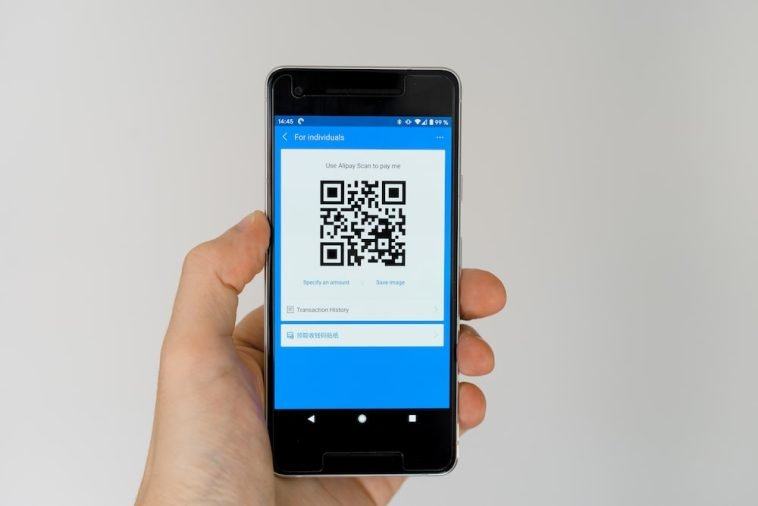Introduction.
If you’re a business owner in Nigeria selling physical products, you’ve probably heard about barcodes.
Barcodes are those little black-and-white striped boxes you see on almost everything you buy—from groceries to electronics.
They might look simple, but they’re actually a big deal for businesses. Barcodes help manage inventory, track sales, speed up the checkout process, and improve accuracy when handling products.
If you’re serious about getting your products into stores or selling them online, having a barcode is often a must.
In Nigeria, getting a barcode for your product can feel a bit confusing, especially with all the options and requirements out there. Do you need an international barcode? How much does it cost? And where do you even get one?
This guide will walk you through everything you need to know about barcodes, why they’re essential for your business, and the steps to get one for your product in Nigeria. Let’s dive in.
What is a Barcode and Why Does Your Product Need One?
A barcode is a unique series of numbers and lines that represents specific information about a product, like its price, manufacturing details, and even batch number.
When a barcode scanner reads a barcode, it pulls up all the relevant details in seconds.
This might sound technical, but the basic function of a barcode is pretty straightforward: it helps retailers and businesses keep track of inventory and sales in a fast and organized way.
For any business trying to grow or sell through major retailers, a barcode is essential. Here are some of the main benefits of having a barcode for your product:
- Better Inventory Management: Barcodes make it easier to track stock levels and quickly check what’s in your inventory.
- Faster and Accurate Checkouts: Using a barcode speeds up the checkout process and minimizes human error.
- Brand Legitimacy: Having a barcode makes your product look more professional and legitimate, which can build customer trust.
- Retail and E-commerce Requirements: Many stores and online platforms require products to have barcodes before they’ll consider selling them.
How Do I Get a Barcode in Nigeria?
Here’s a clear step-by-step guide on how to get a barcode for your product in Nigeria.
Step 1: Decide on the Type of Barcode You Need
There are different barcode types, and the most popular for retail products is the EAN-13 barcode. This 13-digit code is commonly used in Nigeria and internationally.
The EAN-13 works well for general retail products, while other types like UPC (Universal Product Code) are more common in the United States.
However, EAN-13 is the best choice if you plan to sell your products both in Nigeria and globally.
Step 2: Choose a Barcode Supplier
When you’re ready to get your barcode, you need to go through an authorized supplier. In Nigeria, the best-known option is GS1 Nigeria, which is part of the international GS1 organization responsible for managing barcode standards worldwide.
You could also buy barcodes from resellers online, but be cautious—make sure they’re legitimate, as some resellers might sell recycled barcodes or codes that don’t work internationally.
Step 3: Register Your Product with GS1 Nigeria
- Visit the GS1 Nigeria Website: Start by visiting the official GS1 Nigeria website.
- Create an Account and Pay the Fees: You’ll need to create an account, register your business, and pay for the barcodes. GS1 charges an initial registration fee and a yearly maintenance fee. Be prepared with your business details and product information.
- Receive Your Barcode Prefix: Once your registration is complete, you’ll receive a unique company prefix that will be included in each barcode.
- Assign Unique Numbers to Each Product: After receiving your prefix, you can start assigning unique numbers to each of your products. This is an important step because each variation (like different colors, sizes, or flavors) will need its own barcode.
- Print and Apply Your Barcodes: Once you’ve generated your barcode, print it on your product packaging. This can be done with a professional label printer or by outsourcing to a printing company.
Step 4: Test Your Barcode
Before releasing your product for sale, test your barcode to ensure it scans correctly. You can use a barcode scanner app on your phone or consult with a retailer to confirm it works.
Cost of Getting a Barcode in Nigeria
The cost of obtaining a barcode in Nigeria can vary, but with GS1, you’ll pay both an initial registration fee and an annual maintenance fee.
The initial registration fee is around ₦50,000 – ₦80,000 (depending on your business scale), and the yearly maintenance fee is around ₦25,000 – ₦40,000.
Remember, this cost could change, so it’s always a good idea to check the latest prices directly on the GS1 Nigeria website.
Tips for Managing Barcodes Efficiently
- Keep Track of Your Codes: Assign codes methodically and keep a record of them so you know which code belongs to which product.
- Use Barcode Software: To make things easier, consider using barcode generation and inventory management software. These tools can save time and minimize errors.
- Update Barcodes for New Products or Changes: If you launch a new product line or make significant changes to an existing product, you might need to register a new barcode for it.
FAQs
Q1: Can I use the same barcode for similar products?
No. Each unique product, including variations like color, size, or model, needs its own unique barcode. This helps retailers accurately track each product.
Q2: Can I use a barcode bought online from a reseller?
It depends. Many resellers offer legitimate codes, but if they aren’t affiliated with GS1, you might face issues selling internationally. Buying directly from GS1 Nigeria or GS1 globally is the safest route.
Q3: How long does it take to get a barcode?
Registering with GS1 Nigeria and obtaining your barcode typically takes a few days, but it may take longer if additional documents or steps are required.
Q4: Do barcodes expire?
No, barcodes don’t expire. However, if you registered with GS1, you’ll need to pay an annual maintenance fee to keep your barcode active.
Q5: Can I print my barcode at home?
Yes, you can print barcodes yourself, but it’s best to use high-quality printers to ensure the code is readable by scanners.
Conclusion
Getting a barcode might seem like one more task on your to-do list, but it’s a smart investment if you’re looking to grow your business.
Not only does it make managing your inventory easier, but it also opens doors to more retail and online marketplaces.
With just a bit of time and investment, your products can be equipped with barcodes, helping you reach a wider audience.
Ready to take that step? What challenges are you facing in getting a barcode for your product?





GIPHY App Key not set. Please check settings